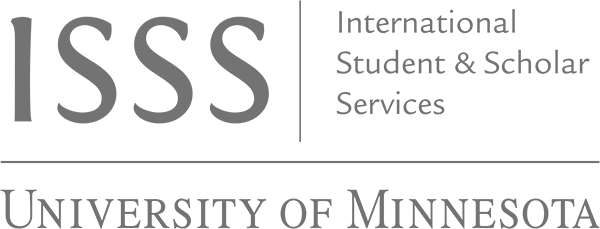Travel Outside the U.S
Before You Travel
- Check if the countries you are visiting require a visa or transit visa.
- If you are traveling abroad for University purposes, you must register your travel with the International Travel Registry (includes H-1B employees traveling to their home country for University purposes).
- If you are traveling to a country with specific regulations related to sanctions or export controls, you must consult the university’s Export Control Officer prior to travel.
- Contact an H-1B Advisor if any job changes have occurred since your H-1B petition was approved, including changes in job title, employing department, duties, work location, full-time to part-time, etc.
- Individuals who are in the U.S. with a pending H1-B petition should not travel internationally while the petition is being processed without first consulting ISSS.
- Arrests or convictions for driving under the influence of drugs or alcohol (DUI) or driving while intoxicated (DWI) may result in the cancellation (also called "revocation") of your visa by the U.S. Department of State.
Documents Required for Entry to the U.S.
- Passport valid for at least 6 months into the future
- Valid H-1B visa (Canadians are exempt) unless eligible for Automatic Visa Revalidation for travel to Canada and Mexico
- Original I-797 Approval Notice and a copy of the application packet that was provided with the I-797 (including I-129 and Labor Condition Application)
- Proof of continued employment at UMN (updated letter and/or copy of most recent pay statement from Employee Self Service)
- If you previously held J visa status and were subject to the 2-year home residence requirement (see Students, Scholars, or Student-Interns), you are not eligible for an H-1B visa unless you have fulfilled or waived the requirement. If you received a waiver, the I-612 Approval Notice issued by USCIS is required. If you fulfilled the requirement, be prepared to show documentation proving that you were in your home country for at least two full years (passport stamps, flight itineraries, statements of utilities or rent paid, proof of employment, etc.)
- H-4 dependents must have a copy of the primary H-1B visa holder's I-797 Approval Notice and application packet, and a copy of the marriage certificate (spouse) or birth certificate (child). H-4 visa holders who have extended or changed status in the U.S. and who have been issued an I-797 Approval Notice in their own name should travel with the original I-797 document.
Dual Intent
Most non-immigrant classifications require applicants to prove they do not intend to immigrate to the U.S. The H-1B, however, benefits from “dual intent.” This allows a non-immigrant to use the H-1B visa/status even if steps have been taken towards permanent residence. Dual intent affords the following advantages:
- An H-1B visa/status cannot be denied because the individual appears to have future immigrant (“green card”) intent.
- A person can apply for permanent residency while holding the H-1B visa/status.
- A person applying for an H-1B visa/status does not need to prove intent to return to their home country.
Extended International Travel
If you will be traveling abroad for an extended period of time (i.e. 60 days or more) and will be working remotely during that time, your hiring department should consult OHR’s International Employment Consultant ([email protected]) for guidance. Additional action may need to be taken to ensure compliance with local tax and employment regulations.
After You Travel
- Each time you reenter the U.S., print and save your Form I-94 from the CBP website. If the “Admit Until Date” expires before the end date on your I-797 Approval Notice, contact us immediately. (The Form I-94 dictates the length of time you are legally allowed to stay in the U.S. The I-94 expiration date may be based on the passport expiration date, if it expires before the I-797.)
- Keep copies of travel documents (flight itineraries, passport stamps, I-94 Forms, etc.) for international travel. These documents may be helpful or necessary in the future; for example, in the case of reclaiming time spent outside the U.S. so you can utilize a full 6 years of H-1B status.
